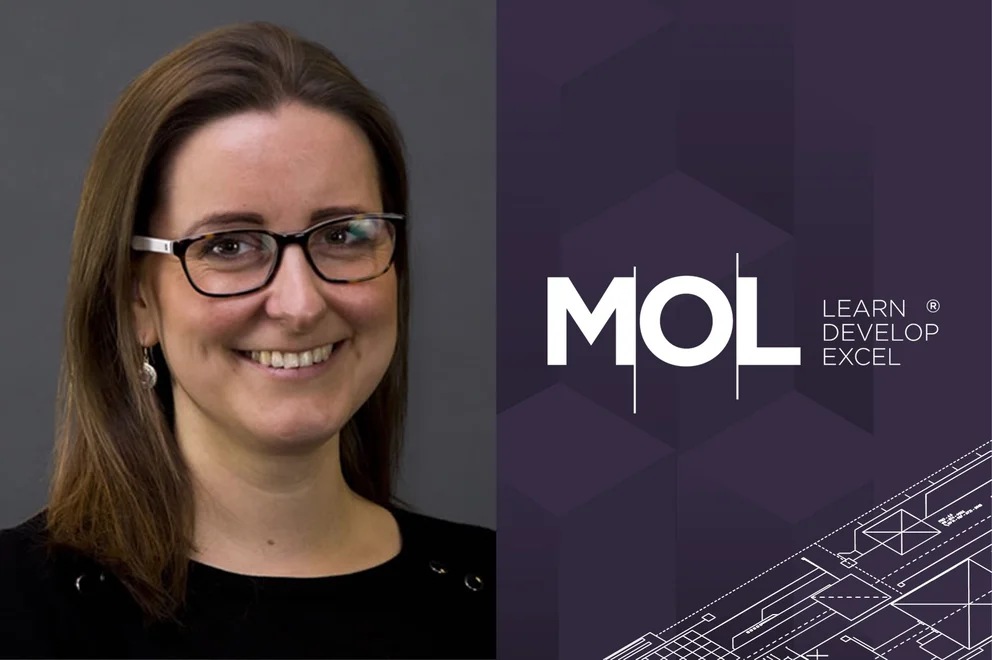Blog: Achieving my Masters in Strategic Human Resources
Fri 24 Mar 2023

Emily Allen
Product Manager - CIPD
Author: Emily Allen, Head of CIPD Qualifications
Like many others, when I handed in my final assignment for my CIPD Level 7 Diploma, I said I would never study again. I was exhausted. It’s a tough qualification and I felt I had got through it with blood, sweat and tears!
But oddly enough, after a couple of years, I wanted that buzz of achievement that only qualifications give, and researched what I could study (project management, leadership, etc).
I signed up for the Masters in Strategic Human Resources top-up programme by MOL (in partnership with the University of Salford) which was a big deal, and I want to share my personal experience of the qualification in case anyone is considering it or hasn’t heard of it.
In short, the good news is that if you’ve achieved your CIPD Level 7 Advanced Diploma, you have 120 credits of a Masters. A full masters is 180 credits, therefore all you need to do to achieve a full masters is a top-up qualification for 60 credits. MOL Learn have a fully online, supported Masters programme accredited by the University of Salford, and the top-up takes just seven months to complete. It’s worth noting that you must have completed your Level 7 in the last five years to be eligible to enrol.
Why should you enrol on the MSc in Strategic Human Resource?
There are many reasons people want to study further, from boredom to that addictive sense of achievement. But here are my personal reasons:
- I enjoy the sense of achievement from studying
- I’d achieved my Level 3 and Level 7 CIPD qualifications and felt I knew how to manage my time alongside a full time job to be able to study
- I liked the sound of the prestige of having a Masters degree. I think it looks impressive to have MA or MSc after your name
- I’d enjoyed studying previously with MOL
- It was the cheapest way of getting a full Masters degree
- It was the quickest way of achieving a full Master degree – it takes just seven months
- I had already done a lot of research for my Level 7 CIPD Diploma (theories, books, study skills etc) and thought I could use some of this
- I wanted it on my CV for future roles to set me apart from other candidates
- I had a topic I wanted to research further into which aligned with an area of study I was really interested in.
What does the MSc in Strategic Human Resources involve?
The best thing about the Masters programme is that it’s directly applicable back into your workplace, or the organisation you are focusing on. The main part is a research project into a real-life business issue. In this way, you do a piece of consultancy work for your organisation, or another one you are close to, and a savvy employer will also see the benefit of you doing this.
You focus on your dissertation, but also do a research proposal to put you on the right track, as well as a reflection. It’s broken down like so:
- Research proposal (2,500 words)
- Dissertation (12,000 words)
You can study flexibly online, from the comfort of your own home or office.
How do I pick a topic for the MSc in Strategic Human Resources?
The best bit of advice I was given as I nervously embarked on my Masters was to pick a topic you are interested in, in an organisation where you work or where you can add value and get insights. You spend a lot of time working on and thinking about this topic, so make sure you care about it.
Also, try and pick a topic that will be useful for the business, where your senior leadership will value your expert insight.
At the time I studied, I was a HR trustee for a charity which was proposing a big cultural change project. Culture change is an area where I wanted to improve my knowledge, so I found everything I researched fascinating. When I wasn’t studying, I was reading a book or article on change management. I read a lot of Kotter and Drucker in my free time!
What I personally loved studying in such depth about change management was discovering how hard it is to do successfully. A lot of businesses plough ahead with huge change projects without really thinking through the impact and it can be an uphill battle. But done well, it is an art form and like many things in the people professional, when it is done well, it is seamless.
This is another thing that really stood out to me from studying so many examples and case studies at this level – great HR departments and leaders are invisible. You’ll never be able to quantify the frictions and issues they prevent.
I really enjoyed being able to critique the data, the gurus and long held assumptions we have on change management in the people profession.
MOL has some brilliant tutors working on the MSc and I received some brilliant support - academic as well as emotional!
Managing my time on a Masters degree
The Masters programme may only be seven months, but it’s an intense seven months. Masters are academically rigorous. They are impressive because they are recognised as being tough.
It’s broken up into weekly chunks to keep you on track. You get regular tutorials and your first assignment is a research proposal to ensure you’re on track.
It is A LOT of work. I’m not telling anyone how to do this, or even making recommendations but just to show the level of commitment needed, I am going to explain how I got through it.
- I created a timetable for the seven months with realistic timeframes
- I said no to a lot of social occasions
- I divided my time up into short chunks and would do chunks of studying every day at the weekend
- I gave myself lots of rewards
- By complete chance I had four weddings to attend in that seven month period! So I allowed myself those weekends to enjoy myself
- I stayed late at work and did an hour every weekday. Personally, once I switch off, I find it hard to get in the zone again, so it was easier just to continue from work
- I knew that the topic I was doing was going to be really appreciated
- I took quite a lot of annual leave in that seven month period so I could have some relaxing time. I took several ad hoc days, as well as a fortnight off for the main dissertation write-up
- I drank a lot less wine than usual in that seven months.
What I learnt from achieving my Masters in Strategic Human Resources
I learnt a lot about the topic and about myself. I know it’s a cliché to say something makes you grow as person, but I really think I pushed myself and know a lot more about myself than I did.
For example, I learnt a lot about time management. I thought I was a bit of a last-minute person, but I’m not. I like a timetable and I do things little and often, and long before the due date. I’m goal orientated and need to break down a big task into smaller, achievable goals to feel a sense of achievement as I go.
I’ve since been able to apply this in the workplace and I think it’s made me a more planned, organised and generally better employee. I’m self-motivated and much better at prioritising my time.
I also learnt a lot about my topic - organisational culture and change management. I was able to effectively do a piece of consultancy work for the charity where I was on the board, and present back to the board and CEO with my findings. The topic fascinates me and since I left that role, I have been able to apply it to my workplace and my current trustee role.
I also learnt a lot more academically. When working at Masters level, it’s important to reflect in depth, as well as gather research and pull together primary and secondary data. To be able to see everything in day-to-day life with a critical eye (the news, the media, documentaries, studies etc) is a huge benefit.
Overall
The great thing about qualifications is that once you have them, they are with you forever. No one can take them away from you. And the MSc top up really is a great way of really proving yourself as an academic and a professional.
Personally, I can’t recommend it enough.
Learn more about the Masters in Strategic Human Resources.

Human Resources
Qualifications
We're proud to be a CIPD Organisational Delivery Partner and deliver all levels of CIPD qualifications from Foundation Certificate to an MSc.

Learning & Development
Qualifications
We understand the L&D profession like no other training provider. That’s what makes our courses great.




